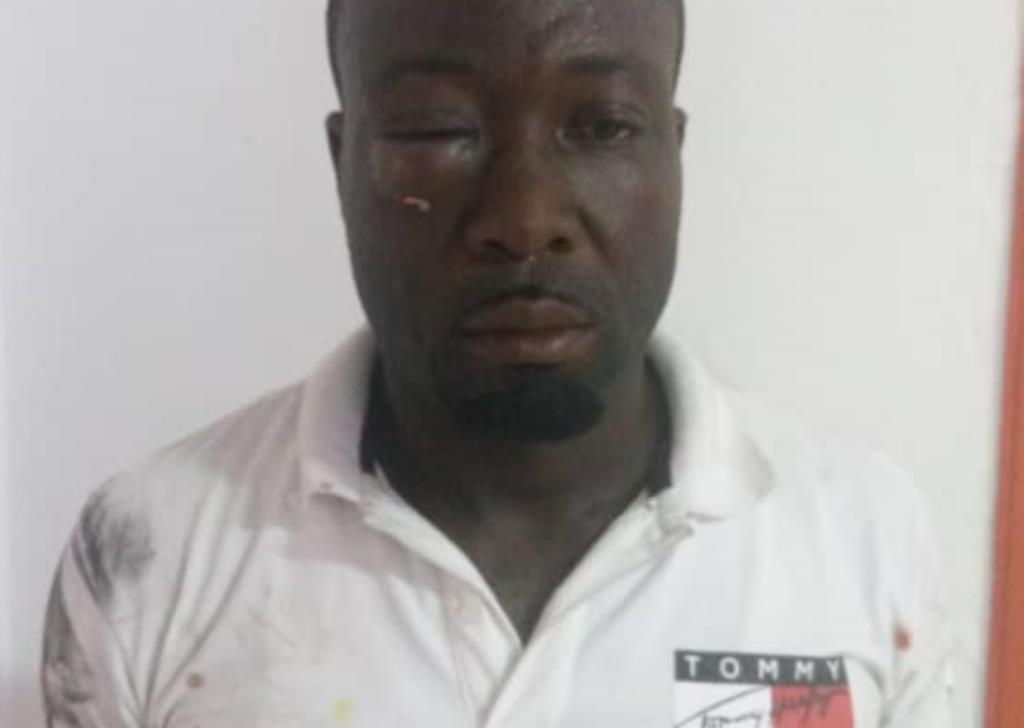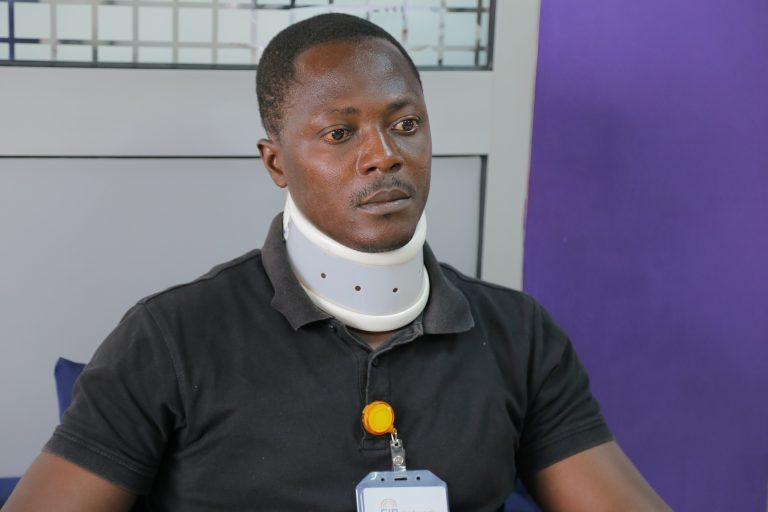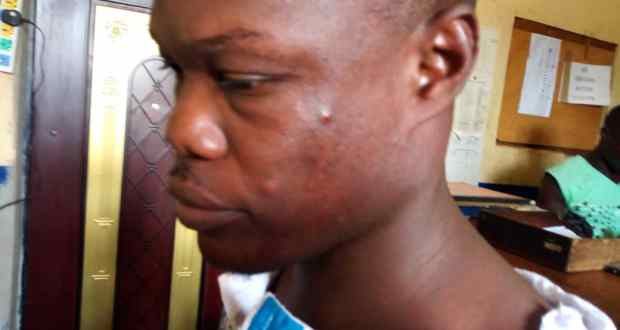Executive Director of the Media Foundation for West Africa, Sulemana Braimah, has said journalists in Ghana have been assaulted more than in any other West African country in the last three years.
Mr Braimah’s comments come on the back of an Afrobarometer Survey Report, which found that a majority of Ghanaians have withdrawn support for media freedom.
Multimedia journalist Latif Iddrisu, brutalised by Ghana Police while covering a demonstration at the Headquarters of the Police Service
He said this is partly due to the perceived corruption the citizenry hold about the media, stemming from low income of journalists which makes them prone to temptations, especially from politicians.
Mr Sulemana speaking on Adom FM’s current affairs show, Burning Issues on Wednesday November 7 also attributed the distrust to the advent of social media which does not give credible information a lot of times.
In the meantime, the survey did not put a distinction between mainstream and social media.

Meanwhile, a senior research fellow of at the Centre for Democratic Development (CDD), Dr Kojo Pumpuni Asante, speaking on the same programme said “because people didn’t meet the Criminal Libel Law, they may have less appreciation of the freedom the media is enjoying at the moment,” making them take the freedom in the industry for granted.
He however asserted that the media could partly be responsible for what they are going through since they sometimes provide content beyond their jurisdiction.
This he says should be a call to the “National Communications Authority to check if media houses comply with the specific licenses that was offered them in order not to go beyond that”.
Dr Pumpuni further called on the public to rather defend journalists and not multreat them, considering the role they play in digesting complex government policies for the citizenry to understand.
He has, however, suggested that subsequent surveys should clearly define media to distinguish it from social media since the later has less credibility of information compared to mainstream media.

BACKGROUND
A survey by Afrobarometer has found that although a majority of Ghanaians say the media now has more freedom than a few years ago to investigate and criticize the government, popular support for a free media has dropped sharply.
Meanwhile, Ghana was ranked number 23 on the World Press Freedom Index making it number 1 in Africa. This shows a complete contrast of the two reports.
A majority of citizens, according to the Afrobarometer, say the government should have the right to prevent the media from publishing things that it considers harmful to society.
This is a reversal of attitudes during previous survey rounds between 2005 and 2014, in which a majority of Ghanaians consistently endorsed media freedom from government interference.
This is a sharp contrast with Ghana’s No. 23 ranking (No. 1 among African countries) on the 2018 World Press Freedom Index.
Members of the media, however, fare considerably better than the police, judges, elected leaders, and traditional leaders when it comes to Ghanaians’ perceptions of corruption.
Afrobarometer is a pan-African, non-partisan research network that conducts public attitude surveys on democracy, governance, economic conditions, and related issues in African countries which begun in 1999 with 7 surveys.
The Afrobarometer team in Ghana, led by the Ghana Center for Democratic Development (CDD-Ghana), interviewed 2,400 adult Ghanaians between September 9 and 25, 2017.

